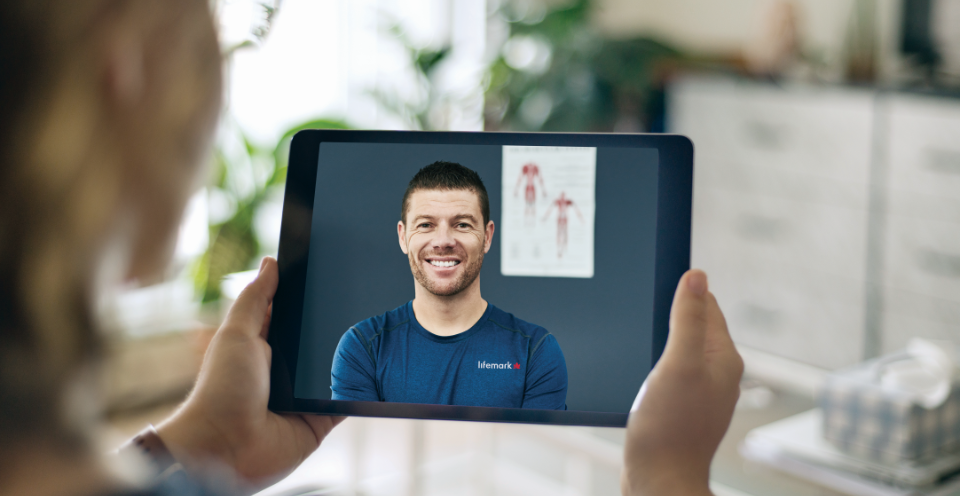Address:
Phone: 613-745-5643
Fax: 613-745-1402
We are offering a variety of virtual care services. Call our clinic to learn more or to book an appointment.
Hours of operation
- Mon:7:00am-8:00pm
- Tue:8:00am-8:00pm
- Wed:7:00am-8:00pm
- Thu:8:00am-8:00pm
- Fri:7:00am-8:00pm
- Sat:Closed
- Sun:Closed
Free parking at the front of our building.
Clinic information
Clinic information
GLA:D
Temporomandibular Joint Rehabilitation
Work Conditioning/Hardening
Multiple Sclerosis Rehabilitation
Myofascial Release Therapy
Neurological Rehab
Psychotherapy
Shockwave Therapy
Stroke Rehabilitation
Traumatic Brain Injury Rehabilitation
Our team
Our team
-
PhysiotherapistType Physiotherapist Book onlineLanguages: English, French
-
PhysiotherapistType Physiotherapist Book onlineLanguages: English, Arabic
-
Type Physiotherapist
Book online
Languages: English, Hindi, Marathi
Common conditions we treat
Common conditions we treat
-
Arthritis
Arthritis is the classifcation of approximately 200 rheumatic diseases and conditions that affect joints, the tissues that surround the joint, and other connective tissue, causing pain, stiffness and mobility challenges. Assessment and treatment from a physiotherapist and chiropractor may help relieve the pain and stiffness.
-
Dizziness and balance
Dizziness and balance issues can include vertigo, benign paroxysmal positional vertigo (BPPV), nausea, light-headedness, vision issues, motion sensitivity and sensitivity to crowds. They can severely impact quality of life if left untreated. Vestibular rehabilitation can help improve symptoms. -
Hand and wrist pain
Hand, fingers and wrist pain can include symptoms such as tingling, numbness and weakness. The most frequent causes are carpal tunnel syndrome, injury or overuse. An assessment and treatment protocol by a physiotherapist can help.
-
Headaches
Headaches can be caused by a variety of conditions and once assessed by a healthcare professional can be helped with physiotherapy treatment.
-
Herniated disc
A herniated disc refers to a problem with one of the rubbery cushions (disks) between the individual bones (vertebrae) that stack up to make your spine. Chiropractic services can help with the associated pain and discomfort.
-
Knee pain
Knee pain can be caused by bursitis, a torn tendon, ACL tear or injury and overuse. It is most frequently the result of osteoarthritis. Physiotherapy can help speed recovery.
-
Low back pain
Low back pain is one of the most common patient complaints. It can result from arthritis, spinal stenosis, scoliosis, sciatica, injury or overuse. An assessment from a physiotherapist or chiropractor can help provide a diagnosis and treatment plan.
-
Rotator cuff injuries
The rotator cuff consists of four muscles that surround the shoulder blade (scapula), and help to hold the arm bone (humerus) in the shoulder capsule. It is easily injured by sport, repetitive use and common daily activity. Physiotherapists can help diagnose and treat symptoms.
-
Sciatica
The sciatic nerve run from the lower back, through the hip and into each buttock before traveling down each leg. Sciatica is the term used to describe the symptoms when there is pressure on the nerve, causing pain in the lower back, hip or buttock. Physiotherapy or chiropractic services can help relieve sciatic pain.
-
Shoulder pain
Shoulder pain can result from bursitis, frozen shoulder, tendonitis or injury and overuse. On rare occasions it may be triggered by illness or infection. A holistic treatment plan that may include physiotherapy, acupuncture, massage therapy or chiropractic services may help.
-
BPPV
Benign paroxysmal positional vertigo or BPPV is the most common form of vertigo, and results in sharp and acute dizziness brought on by movement. It is caused by a dysfunction in the vestibular apparatus, a series of canals located inside the ear, which includes a canal of tiny crystals of calcium carbonate. BPPV occurs when some of the crystals escape from their normal chamber and get into one or more of the other ear canals. Vestibular rehab therapists are trained in treating the symptoms of BPPV.
-
Multiple sclerosis
-
Post-concussive syndrome
-
Spinal Cord Injuries
-
Stroke
Coverage options
Virtual care
Virtual Care
 Virtual Care leverages video conference technology to provide services, including online physiotherapy, at a distance. Our video conference platform, built for healthcare professionals, allows you to consult a Lifemark clinician in the comfort of your own home.
Virtual Care leverages video conference technology to provide services, including online physiotherapy, at a distance. Our video conference platform, built for healthcare professionals, allows you to consult a Lifemark clinician in the comfort of your own home.
A clinician can assess or treat you, evaluate your range of motion, recommend exercises, give you advice on pain and pain management and much more.
Services from our specialty programs, such as pelvic health or concussion care, are also available through Virtual Care.
Secure, convenient online services
Virtual Care uses video conference technology to provide services at a distance that are private, secure and easy to use while giving you more flexibility by reducing travel time.
By removing accessibility and mobility barriers, Virtual Care ensures you can receive the care you need. Your privacy is protected through robust policies and safeguards and our clinicians are required to meet the same regulatory and legislative requirements and adhere to their respective Standards of Practice and Code of Conduct as they do for in-person services.
How it works
Before your appointment, you will receive a link to an online appointment session by email or text message. This link will take you to a video conference platform that will allow you to connect with your clinician and discuss your condition with them in real time.
You may be required to review and complete documentation before your appointment, which will be sent to you ahead of time.
For more information about our Virtual Care service, click the button below.












